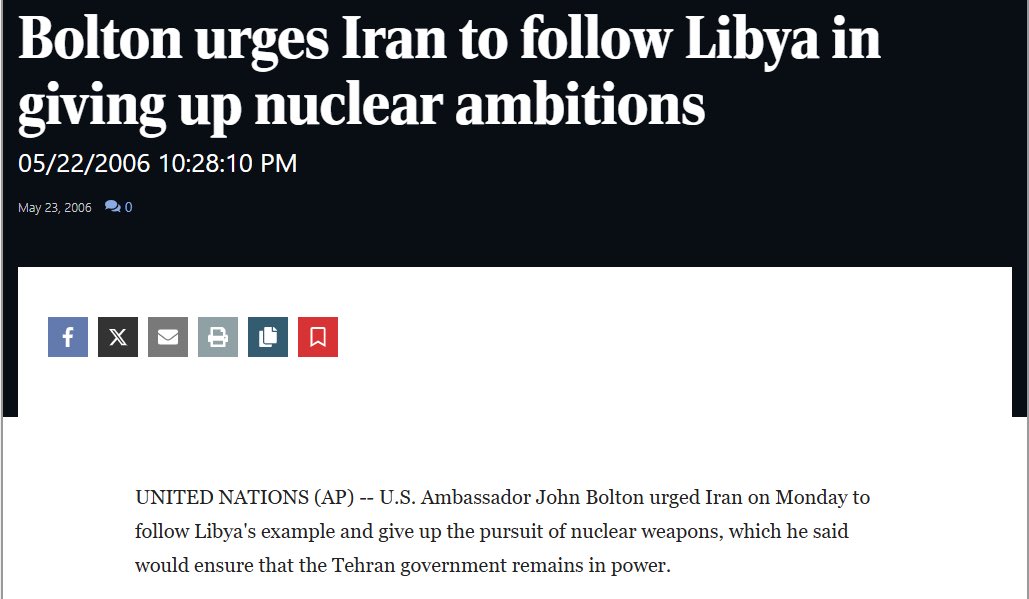I have nothing but respect for the @WSJ reporting team - @laurnorman, @SuneEngel and others are among the best in the game.
But goodness me does the Ed Board get it wrong. [thread 🧵]
on.wsj.com/2PTerKs
But goodness me does the Ed Board get it wrong. [thread 🧵]
on.wsj.com/2PTerKs
2/ From day US left JCPOA, few major papers have as loudly & consistently banged max pressure drum.
"Prudence... suggests a wait-and-see attitude toward Mr Trump’s reversal", they said that May. "A year from now, the world may be safer without it".
Narrator: It wasn't.
"Prudence... suggests a wait-and-see attitude toward Mr Trump’s reversal", they said that May. "A year from now, the world may be safer without it".
Narrator: It wasn't.

3/ From the outset, today's editorial predictably uses the JCPOA critics' adjectives of choice - flawed, bad - to say we're going "back to the future of 2015-16".
I dunno, from a non-proliferation standpoint, that's not so shabby.
I dunno, from a non-proliferation standpoint, that's not so shabby.

4/ News of the Natanz op rightly noted, strangely explained: it's not the deal that failed to stop Iran from making progress, it's the *absence* of the deal that's resulted in the escalation. Otherwise Natanz today would have <300kg uranium stockpiled at <4%. 

5/ Then we have a tried & tested criticism of JCPOA: not covering other issues of concern. It was a valid critique in 2015, but clear lesson of 2018-present is that max pressure didn't just fail to fix on missiles and malign behavior - it also undid nuclear restrictions. 

6/ As proof of "concessionary courtship" by Biden admin, journal says WH "ended fight on snapback" and hasn't rejected Iran's IMF loan.
a) Fight on snapback was over last year. Trump administration got KO'd bigly.
b) Iran's IMF loan still nowhere to be seen.
a) Fight on snapback was over last year. Trump administration got KO'd bigly.
b) Iran's IMF loan still nowhere to be seen.

7/7 I could go on, but bottom line is this: JCPOA has been in place for 5 years, 4 of which were under Trump, 3 of which have been under max pressure. And critics still haven't delivered a serious, realistic plan to better it.
• • •
Missing some Tweet in this thread? You can try to
force a refresh










